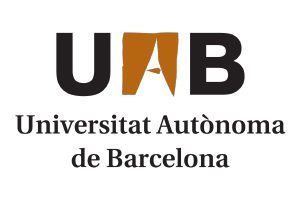UAB Institute of Law and Technology
BARCELONA – SPAIN
Brief Biography of Partner
The UAB Institute of Law and Technology (IDT), housed at the Faculty of Law, is a research centre promoting cutting-edge research on Law and Technology from an interdisciplinary perspective. The IDT was created in 2005 and emerged out of the former UAB Socio-legal Studies Group (GRES). At present, the areas of research include Law and Artificial Intelligence, legal culture and judicial studies, alternative dispute resolution (ADR) and online dispute resolution (ODR), legal ontologies, the Semantic Web, Data Protection, Ethics and regulations for the Web of Data.
The IDT-UAB team role entails: (i) setting the normative requirements for the project approach; (ii) building the regulative model for the technologies and platform deployed in the project and the workflow of data; (iii) carrying out the knowledge acquisition process; (iv) fleshing out the governance and ethical principles for the whole system; (v) guiding Consortium partners in data protection issues to promote data protection compliance with the GDPR: (vi) linking the project with the monitoring tasks of the project’s Ethical Advisory Board all along lifecycle of the project; and (vii) providing interoperability among different European countries through semantics.
IDT researchers are also able to contribute significantly to the organization of specialized Workshops, and the dissemination of the project findings and results through scientific publications and presentations in the main Data Protection and Law & Technology Conferences and Workshops (EDPD, EDPP, IVR, Jurix, ICAIL, AICOL).
Partner’s Role in the OPTIMAI project
The UAB Institute of Law and Technology (IDT) is in charge of WP9 (Legal and Ethical Framework). The main objectives of this WP are: i) to identify the EU ethical and legal framework applicable to the project with the aim of ensuring that the innovation brought by OPTIMAI is lawful, ethical and social desirable; ii) to identify the potential risks posed by the foreseen research activities from an ethical, legal and social perspective; (c) to provide the OPTIMAI regulatory model; (d) to set up a monitoring and enforcement strategy to ensure that the outcomes of the project comply with the legal and ethical requirements and societal values previously identified for OPTIMAI; and (e) to provide continuous legal and ethical advice and support to the OPTIMAI Consortium.




